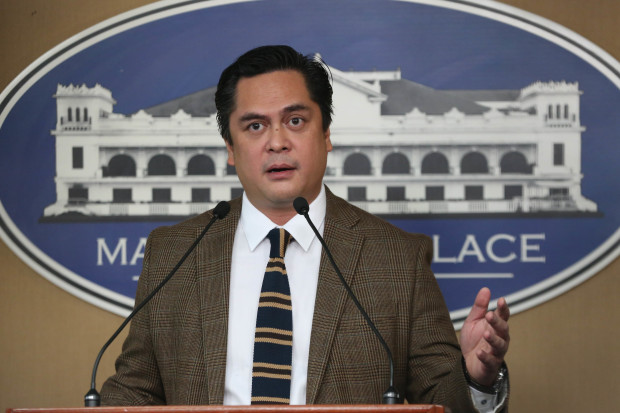
Presidential Communications Secretary Martin Andanar. ALBERT ALCAIN/Presidential Photo
It does not employ “a keyboard army,” Malacañang’s communication office said in response to claims by the US-based rights group Freedom House that the Duterte administration was operating fake social media accounts to attack its critics.
“The Presidential Communications Operations Office (PCOO) does not employ a ‘keyboard army,’” Communications Secretary Martin Andanar said.
“What President Duterte has are millions of supporters, 16 million of (whom) turned up at polling precincts throughout the land,” he added.
Up to P3,000 a day
Andanar wanted to know how Freedom House, which describes itself as a “US government-funded nongovernment organization that conducts research and advocacy on democracy, political freedom and human rights,” gathered its data on what it called “a keyboard army.”
In its “Freedom on the Net 2017” report, Freedom House said that members of a “keyboard army” could earn from P500 to as much as P2,000 to P3,000 a day by operating fake social media accounts that backed Mr. Duterte or attacked his detractors.
Freedom House also found that widespread political campaigning on social media was rampant during last year’s general elections, and that President Duterte “directed much of his budget to fund social media campaigns before his surprise victory.”
The report added: “Many of the accounts continue to spread and amplify messages of support of [Duterte’s] policies now (that) he’s in power, though it is not clear whether they are working with official government channels.”
Oxford study
Several of Mr. Duterte’s supporters maintain a strong presence on social media, where they often bash his perceived critics. Some of them have been given government posts, including raunchy singer-dancer Mocha Uson, who is now assistant communications secretary.
In July this year, Oxford University published the study, “Troops, Trolls and Troublemakers: A Global Inventory of Organised Social Media Manipulation,” which looked at the strategies used by political parties and candidates in 28 countries to spread their message and inflate social media engagement numbers.
The study said that the Duterte camp spent $200,000 (£150,000) during the 2016 elections to fund a social media campaign to promote and defend their presidential candidate online.
In an interview with a local news outlet, the President admitted to paying people to defend him on social media during the campaign season, but denied that the campaign continued after he was elected.
“But now, I do not need it. I do not need to defend myself against attacks. I stated my piece during my inauguration and my campaign,” said the President in the interview. He also described Oxford University as a “school for stupid people.” —INQUIRER RESEARCH
Source: Freedom House report “Freedom on the Net 2017”